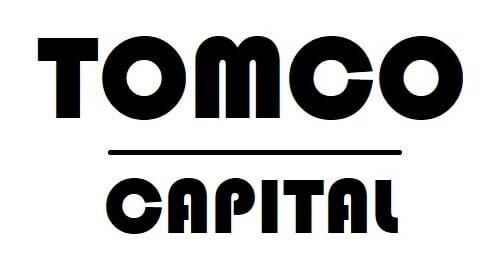
Hiring the right people is one of the biggest challenges any business owner faces. It's even more daunting when you're a small, unknown company without deep pockets for salaries.
Hi, I’m Thomas Michael, and I’ve spent over 25 years in the business world, navigating the tricky waters of hiring top-notch talent. When I started Michael Management Corporation, we were a small fish in a big pond. Yet, we managed to build a team of smart, motivated professionals who helped us become the 2nd largest SAP training provider in the world.
How did we do it? It all boils down to three key principles: interviewing for skills, hiring for experience, and keeping for culture. These principles helped us identify the right candidates who not only had the necessary skills but also fit seamlessly into our company culture. In this article, I'll share how applying these principles can help you build an amazing team, no matter how small or unknown your company might be.
Principle 1: Interview for Skills
When it comes to hiring, the first step is to ensure that candidates have the skills required for the job. This might sound obvious, but you’d be surprised how often this gets overlooked. My philosophy is simple: if it starts hard, it ends hard. This means that if a candidate’s resume doesn’t clearly demonstrate the necessary skills, they’re not worth considering. It’s ruthless, but it’s effective.
During the resume collection and the first round of interviews, I focus exclusively on the skills required for the position. I don’t get distracted by charming cover letters or impressive but irrelevant accomplishments. Instead, I zero in on the key competencies needed for the role. If a resume doesn’t match up, it’s out. No exceptions.
For example, when we were hiring a new software developer, we received hundreds of applications. Many were from highly educated, well-rounded individuals. But if they didn’t have the specific programming skills we needed, their resumes went straight to the rejection pile. It might sound harsh, but it saved us a lot of time and ensured that only the most qualified candidates made it to the interview stage.
By focusing on skills from the get-go, you set a solid foundation for the rest of the hiring process. It’s a strategy that weeds out unqualified candidates early and keeps the process efficient and effective.
Principle 2: Hire for Experience
Once we've identified candidates with the necessary skills, the next step is to focus on experience. We want people who have successfully done the job elsewhere. Experience is a crucial factor because it means they’ve already navigated the challenges and pitfalls that come with the role. They know what success looks like, and they know how to achieve it.
Our hiring process includes 2-3 rounds of in-depth interviews, both with me and with members of our existing team. These interviews are designed to dig deep into the candidates' past roles and achievements. We ask detailed questions about their previous jobs, the specific tasks they handled, and the outcomes of their efforts. We want to know about their successes and how they achieved them, as well as the challenges they faced and how they overcame them.
For instance, we once needed to hire a Channel Partner Manager. We had many applicants who were successful salespeople, but we ultimately hired someone who had built a partner organization at their previous company. This candidate had the exact experience we needed. They had already been there and done that, which meant they could hit the ground running with minimal training or oversight.
Hiring for experience means not getting swayed by candidates who are smart, nice, or otherwise impressive but lack the specific experience needed for the job. It’s about finding those who have a proven track record in similar roles. By doing this, we ensure that new hires can contribute effectively from day one.
Principle 3: Keep for Culture
This is the most critical principle of all: keeping people who fit the company culture. Skills and experience are essential, but if a new hire doesn’t mesh with the company culture, it’s a recipe for disaster. Culture is everything in a business, especially a small one. Every business has a culture—either by design or by default—and maintaining it is crucial for long-term success.
During the final stages of our hiring process, we pay close attention to how well candidates align with our company’s values, work style, and team dynamics. This involves not only formal interviews but also informal interactions, such as team lunches or casual meetings. We observe how they communicate, collaborate, and respond to the existing team members.
One bad hire can ruin what took years to build. I’ve seen it happen. A new hire who doesn’t fit the culture can disrupt team harmony, lower morale, and negatively impact productivity. If you notice that someone on your team doesn’t click with the culture, cut them fast. It never gets better, and performance improvement plans rarely work in these cases. Be quick and be ruthless.
For example, we once hired a highly skilled developer who had excellent experience. However, it quickly became clear that their way of working and interacting was at odds with our collaborative, open, and supportive culture. Despite their technical prowess, the mismatch in culture caused friction and stress within the team. We made the tough decision to let them go, which ultimately preserved the harmony and productivity of our team.\
By following this principle, we have been able to maintain a strong, positive culture that supports our team’s success and growth. It’s not just about finding people who can do the job, but finding people who can do the job in a way that aligns with and enhances your company’s culture.
Building the Team
By adhering to these three principles—interviewing for skills, hiring for experience, and keeping for culture—we’ve managed to build an exceptional team. This team wasn’t just any team; it was a group of smart, motivated professionals who were aligned with our goals and values. Together, we grew Michael Management Corporation to become the 2nd largest SAP training provider in the world.
The process wasn’t always easy. It required discipline, a clear vision, and the courage to make tough decisions. But the results speak for themselves. Our team was able to innovate, collaborate, and deliver outstanding results because they had the right skills, relevant experience, and a deep connection to our company culture.
Watching our team grow and succeed has been one of the most rewarding experiences of my career. We didn’t just build a company; we built a community of professionals who supported each other and worked together towards a common goal. This strong foundation allowed us to navigate challenges, seize opportunities, and achieve remarkable success.
Final Thoughts
Final Thoughts
And there you have it—my philosophy on hiring top-notch people for a small, unknown company. By focusing on skills, experience, and culture, you can build a team that not only excels at their jobs but also fits seamlessly into your company’s environment. This approach helped us grow from a small startup to a major player in the SAP training industry.
Remember, hiring the right people is about more than just filling positions. It’s about building a team that will drive your company forward, uphold your values, and contribute to a positive and productive work environment. So, be ruthless in your initial screenings, thorough in your experience evaluations, and uncompromising in maintaining your culture.
With these principles, you too can build an amazing team that will help your business thrive. Here’s to your success in creating a team of top-notch professionals who will take your company to new heights!
